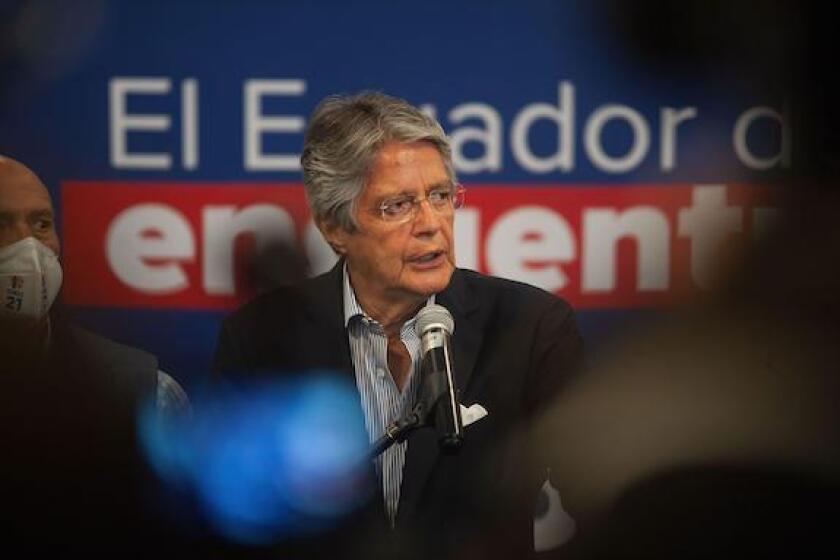Ecuador is clinging on to its status as one of the few positive reform stories in Latin America, a region where political developments make bond buying perilous — whether in triple-C or single-A rated assets. The sovereign has renegotiated an IMF deal, and recently passed a vital tax reform, judged credit-positive. Next up, Ecuador wants to implement a new investment framework, and a labour reform is in the works.
Indeed, since conservative businessman Guillermo Lasso won a surprise victory in presidential elections in April, Ecuador’s bond prices have held up pretty well in challenging markets. Bond yields are back in single digits — between 8%-9%.
While these may not be levels that suggest overwhelming confidence in the country’s ability to pay its debts, a quick glance at the 20-something percent yields in Argentina — which negotiated its multi-billion dollar bond stock over the same period as Ecuador last year — suggests bondholders should be grateful for small mercies.
Lasso himself is indeed in bullish mood. Last week the president mooted the possibility of Caa3/B-/B- rated Ecuador returning to international bond markets for the first time since the restructuring in the first quarter of 2022.
The chorus of horrified voices from credit analysts was loud enough to drown out Latin America’s famously boisterous Christmas music. Talk of a new issue is “premature”, they said, and the government’s focus should be on further fiscal consolidation.
Already, the labour reform has been delayed at least to the second half of next year as there is limited support for the bill beyond the government.
It could be easy for Ecuador dismiss these warnings. Clearly, portfolio managers are to a certain extent talking their own book; they do not want their Ecuador holdings to cheapen in the face of higher supply. Single-B rated Latin America credits enjoy only fleeting access to international bond markets, so if they can find investors willing to put their hands in their pockets, why not take advantage?
As much as investors push back and claim there would not be appetite for a new issue, if you add enough new issue concession to an 8% secondary market yield Ecuador will most likely have itself a deal. Fear of missing out is usually sufficient motivation for investors if the yield is high enough.
In fact, given how little bonds reacted to the tax reform news, there’s a reasonable chance that January liquidity will take Ecuador’s bonds even tighter before it gets the chance to officially announce a new issue.
Yet DCM bankers trying to push Ecuador — until 2019, a pretty lucrative client — back to the primary market may also be talking their own book. And the sovereign should keep its discipline and resist calls to return.
First up, signals matter. Ecuador is one of the few countries in Latin America making progress with the IMF, and a further $700m is likely to be released under its programme in January. As Goldman Sachs noted this week, this provides a “valuable funding anchor” for the sovereign, as it is likely to unlock disbursements from other multilateral and development finance lenders. All this at a time when oil prices — a crucial source of revenue for Ecuador’s government — remain high.
Issuing in international markets in the short term, when other funding sources are available, would suggest Ecuador has not overcome its addiction to bond printing — despite the country’s stay in restructuring rehab last year.
The second element is mathematical. Issuing debt at over 9% is an expensive business. Even if global interest rates rise next year, as the consensus view suggests, Ecuador should be well protected from the rises as long as its government retains mostly orthodox policy. Ecuador bonds are a yield play, not a rates play, after all.
What’s more, 9% or more is not a rate that sovereigns with sustainable economies pay to borrow in dollars. It elevates debt service risks and can become a vicious cycle. It would suggest that Ecuador itself has little faith in its own ability to carry out fiscal consolidation and reforms, and wants to take the money and run before things turn ugly. If the government itself loses faith, investors will turn on the country even faster.
Ecuador’s good work with the IMF has eased financing pressures. It should take advantage of hard-earned privileges and keep out of the bond markets for a while yet. Discipline will likely be rewarded in the long term.

